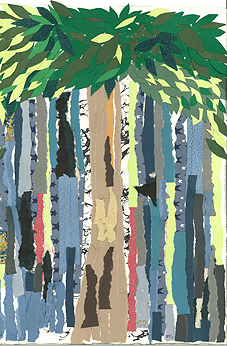Modernity and Public Sphere in Vernacular
Purushottam Agrawal
Questioning the Euro-centric paradigm of modernity in the same vein, and rightly noting that, “post-modernity is just the latest moment of European modernity,“ the Mexican historian Enrique Dussel proposes to explore the dynamics of “trans“-modernity. Such an exploration demands a “whole new interpretation of modernity in order to include moments that were never incorporated in the European version.“5 It is also useful to remember that, even in Europe, the modernization of ideas and attitudes, the “enlightened“ interrogation of “traditional“ ideas and practices preceded industrialization and not vice-versa. Dussel reminds his readers of Max Weber’s “intuition“ that “if Europe [had] not been the region most prepared to carry out the Industrial Revolution, it would have been China or Hindustan.“6 Another relevant question is that of similarity and difference. To think in terms of non-European or alternative modernities is not to look for mirror- images of the apparatus of the European modernity. Discarding the mirage of mirror images on one hand, and the fallacy of “absolute“ difference on the other, the idea is to look for the processes− indigenous as well as between various societies−that went into the making of modernity in many parts of the world simultaneously. It is useful to remind ourselves that, with all the differences amongst human groups and their cultural traditions, there are some similarities as well, and of course, similar and same are not one and the same thing. Curiously, post-modernist discourse, with all its rhetoric of de-centering reaffirms the idea of European uniqueness and superiority, by arguing that the episteme of science and ideas of universal human values were uniquely (that is, without any significant inputs from the non-Europe) generated by the European Enlightenment and hence are both unavailable to and unsuitable for other cultures. In the context of historiography of colonialism, this post-modernist stance implies the eager acceptance of the same representation of non-Europe, which was so crucial to imperialism’s self-imagery. Unfortunately, this arbitrary prejudice is not confined to historiography alone or to a particular strand of Western social, philosophical and historical thought. Though being interrogated of late, this prejudice is still quite prevalent. Achille Mbembe sums up the situation quite succinctly: On key matters, the Hegelian, post-Hegelian and Weberian traditions, philosophies of action and philosophies of de- construction derived from Nietzsche or Heidegger, share the representation of distinction between the west and other historical human forms as, largely, the way the individual in the west has gradually freed her/himself from the sway of traditions and attained an autonomous capacity to conceive, in the here and now, the definition of norms and their free formulation by individual wills. These traditions also share, to varying degrees, the assumption that, compared to west, other societies are primitive, simple, or traditional in that, in them, the weight of past predetermines individual behavior and limits the areas of choice– as it were a priori. The formulation of norms in these latter societies has nothing to do with reasoned public deliberation, since the setting of norms by a process of argument is a specific invention of modern Europe.7 Pages: 1 2 3 4 5 6 7 8 |
Essays in this Forum
Rethinking the Global South
by Mukoma Wa Ngugi From Indian Literature to World Literature: A Conversation with Satya P. Mohanty by Rashmi Dube Bhatnagar and Rajender Kaur Asia in My Life by Ngugi wa Thiong'o The Global South and Cultural Struggles: On the Afro-Asian People’s Solidarity Organization by Duncan Mceachern Yoon The Fault Lines of Hindi and Urdu by Sanjay Kumar Reframing Colonialism and Modernity: An Endeavour through Sociology and Literature by Gurminder K. Bhambra Varieties of Cultural Chauvinism and the Relevance of Comparative Studies by Tilottoma Misra Literature to Combat Cultural Chauvinism: A Response by Shivani Jha Is There an Indian Way of Thinking about Comparative Literature? by E. V. Ramakrishnan Modernity and Public Sphere in Vernacular by Purushottam Agrawal West Indian Writers and Cultural Chauvinism by Jerome Teelucksingh Oral Knowledge in Berber Women’s Expressions of the Sacred by Fatima Sadiki |
